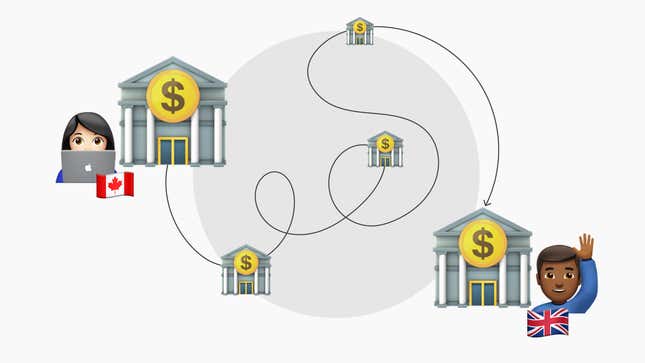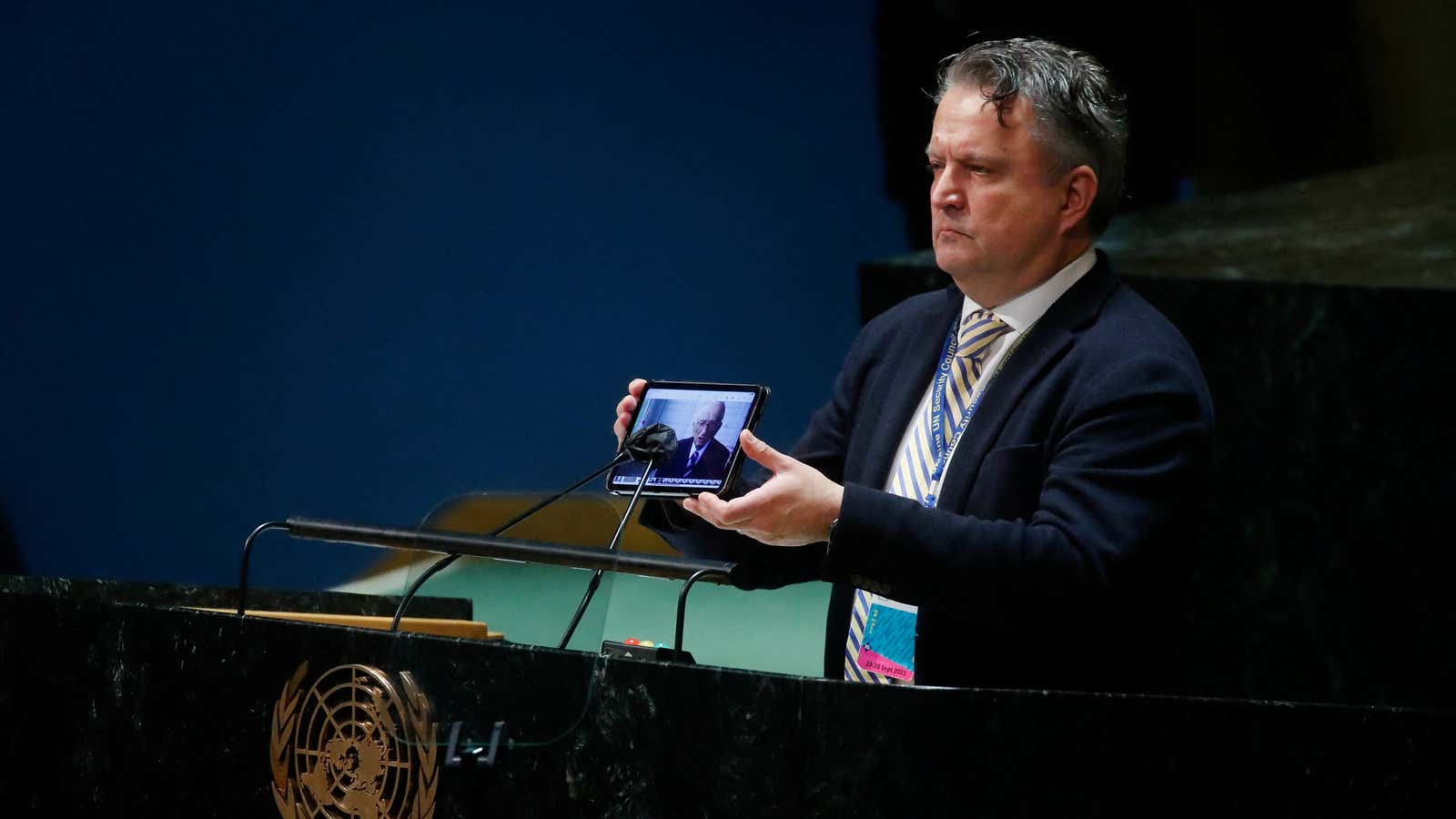Good morning, Quartz readers!
Was this newsletter forwarded to you? Sign up here. Forward to the friend who’s a sneakerhead.
Here’s what you need to know
NATO is sending arms to Ukraine. Nearly all NATO and EU countries are on board, and the UN’s general assembly voted to condemn Russia’s invasion. Meanwhile, Russia and Ukraine plan to talk today, as the former continues to bomb the cities of the latter.
Boris Johnson will release a list of “Putin’s pals” to consider avoiding. The names of people and companies friendly with the Russian president will extend beyond those hit with official sanctions—one Putin pal, oligarch Roman Abramovich, said he’d be selling the Chelsea Football Club.
The EU is keeping its eye on crypto as a sanction-avoidance mechanism. Trades of Russian rubles for Tether currency have spiked. The EU and the US also added Belarus to their sanctions packages.
Hong Kong’s death rate has topped the US’s worst day. Per capita, the city also currently has the highest percentage of covid deaths in the world.
Eurozone inflation hit a record high. February’s climb was buffeted by soaring energy prices. Across the Atlantic, US Federal Reserve chair Jerome Powell supported a quarter-point interest rate hike this month.
Ford is splitting in two. The US automaker will separate its electric vehicle and gas-powered car businesses.
What to watch for
Today, the European Union is expected to agree to allow Ukrainians to enter its member states for three years without formally applying for asylum. Already nearly 900,000 Ukrainians have fled the war, and the UN predicts up to 4 million will leave the country.
This would be the first time the bloc has triggered its Temporary Protection Directive, which was enacted in 2001 after the wars in Yugoslavia and Kosovo. The program is strictly voluntary: Each country would be able to decide for itself how many refugees to accept, and each arriving family would have a say in which country they went to.
Hungary and Poland—two of the countries most opposed to taking in refugees during the 2015 migrant crisis—have thrown open their doors to Ukrainians, and leaders have made the case for helping their fellow Europeans while closing their borders to refugees from places like Afghanistan.
What is SWIFT, and how does it work?

Sanctions against Russia include a proposal to limit the country’s access to SWIFT, a platform for facilitating money transfers that is integrated into banking systems worldwide. SWIFT, which stands for the Society for Worldwide Interbank Financial Telecommunication, is a messaging system that allows banks to securely and quickly communicate about cross-border payments.
Say Amanda in Canada wants to send money to Marc in the UK…
1️⃣ She tells her bank the amount to transfer, Marc’s account number, and the SWIFT code of Marc’s bank.
2️⃣ If the banks have a relationship, the message goes from one to the other. If the banks don’t have a relationship, the message goes through intermediary banks.
3️⃣The banks settle the payment. Marc receives his transfer.
Limiting Russia’s access to SWIFT is one part of disconnecting it from the international financial system, but banks have other options.
Need a break from the news?
Why not try a new hobby? While it can be difficult to dive in and commit—particularly when there are so many awful distractions—hobbies can improve your mental health, help you be more creative, and even be an outlet for activism. ✦ Our latest How To email has some tips to get you started. You’ll need to be a Quartz member to read it. Try a seven-day free trial.
Handpicked Quartz
✈️ A cheap drone is giving Ukraine’s military an edge against Russia
🛥 A Ukrainian sailor attempted to sink a Russian oligarch’s yacht
🙅♀️ China’s tech giants face a domestic backlash for plans to exit from Russia
🛢 As Russian oil turns toxic, Saudi Arabia could see a windfall
😬 What if your boss were a Putin supporter?
🎤 Nearly 20,000 Russian artists are demanding a withdrawal from Ukraine
Surprising discoveries
What’s scarier than one T. rex? That’s easy: three separate species.
Sean Penn is walking out of Ukraine. Having been in the country to shoot a documentary about the war, the actor is now fleeing on foot with the rest of the refugees.
Mark Zuckerberg is not a robot. The Facebook founder circled traffic lights to prove it.
The Lupin set was a victim of a heist. The French Netflix show got a taste of its main character’s medicine when 20 thieves broke onto set to steal equipment worth €300,000 ($333,700).
Frozen fish sticks may be more sustainable than a fish you’d get at a restaurant. Learn more about the 1950s convenience food that became a pandemic hero in the newest episode of the Quartz Obsession podcast.
🐟 Listen on: Apple Podcasts | Spotify | Google | Stitcher
Our best wishes for a productive day. Send any news, comments, CAPTCHA fails, and tartar sauce to hi@qz.com. Get the most out of Quartz by downloading our iOS app and becoming a member. Today’s Daily Brief was brought to you by Nicolás Rivero, Amanda Shendruk, Susan Howson, and Liz Webber.
